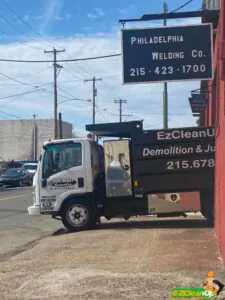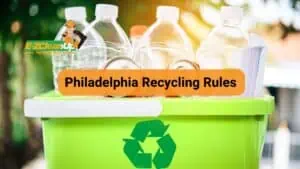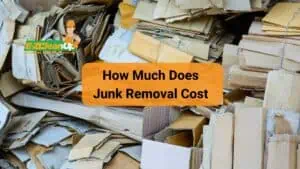The rise of solar panels as a renewable energy source is indisputable. They’ve turned rooftops into mini power plants and redefined the way we harness the sun’s energy. However, like any other product, solar panels reach the end of their lifecycle and require proper disposal. Responsible disposal of solar panels and equipment is not just an eco-responsibility but also an opportunity to reclaim and recycle valuable resources.
But how do we navigate the path to safe and sustainable disposal?
Dive in to learn all about solar panel disposal, why it matters, and the best practices to ensure we’re not trading one environmental problem for another.
The sun may set on the lifespan of a solar panel, but with the right knowledge, its parts can rise again in new forms.
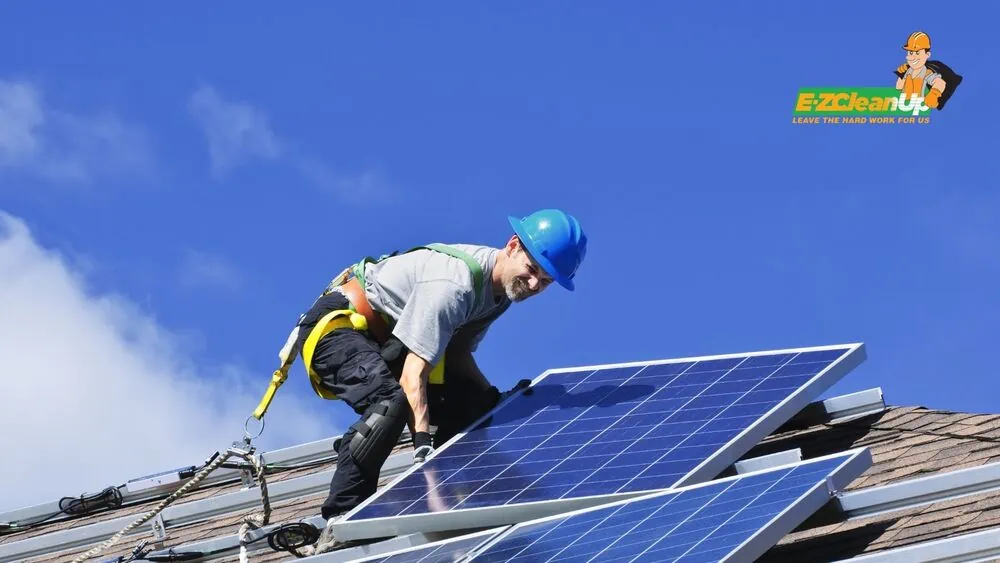
The Disposal Options for Solar Panels
Sell 🏷️
Solar panels that still have life left in them can find a second home. By selling your used solar panels, not only do you recoup some of your initial investment, but you also extend the life of the panels, diverting them from the waste stream.
Donate or Give Away 🎁
If selling isn’t your thing, consider donating your panels to a non-profit organization or giving them to someone in need. This act of kindness could help power a community center, school, or a low-income household.
Recycle ♻️
When your solar panels are beyond repair or reuse, recycling is a fantastic option. Solar panels contain valuable materials like glass, aluminum, copper, and even trace amounts of silver. The process of recycling allows these materials to be reclaimed and repurposed, reducing the need for new raw materials and minimizing environmental impact.
The Benefits Of Recycling Solar Panels Are Twofold
Firstly, it conserves precious natural resources. Some components of solar panels, like silver and rare earth elements, are finite. By recycling these components, we can ensure their availability for future generations.
Secondly, recycling also mitigates the harmful environmental impact associated with mining and extraction of these materials. It can significantly reduce energy consumption, greenhouse gas emissions, and potential water pollution.
In a world where sustainable living is becoming a necessity rather than a choice, every step we take towards reducing waste and recycling materials matters. So when the sun sets on your solar panels’ useful life, let them rise again through selling, donating, or recycling.
How Does Solar Panel Recycling Work? 🔄
Solar panel recycling involves a series of steps to effectively recover the valuable materials within. Here’s a brief overview of the process:
Collection and Transportation 🚚
The first step involves gathering the old or damaged solar panels and transporting them to the recycling facility.
Manual Dismantling 🔧
Once at the recycling facility, the solar panels are manually dismantled. This involves removing the metal frame and the glass layers, both of which are easily recyclable.
Thermal Processing 🔥
After dismantling, the solar cells are subjected to a high-temperature treatment. This process separates the cell elements and allows for the recovery of valuable materials.
Chemical Treatment 🧪
The next step is a chemical bath, which helps to further separate and recover precious and rare metals used in the cells.
Preparation for Reuse 🔄
The recovered materials are then prepared for reuse. Metals like aluminum and copper can be used in new products, and rare materials like silver can be reused in the manufacturing of new solar panels.
While this is a simplified explanation of the recycling process, it gives an idea of the complex and thorough methods involved in responsibly recycling solar panels. Each step plays a crucial role in ensuring the valuable materials found in solar panels can live on in new products, giving them a new lease on life.
Why is Solar Panel Recycling Complex?
Solar panel recycling can be quite a complex process for a variety of reasons:
Diverse Materials 🎨
Solar panels are made up of a wide range of materials, including glass, plastic, metals, and semiconductors. Each of these components requires a different method of recycling and extraction, making the process quite intricate.
Hazardous Components ☠️
Solar panels contain some potentially harmful materials such as lead and cadmium. Safe handling and disposal of these substances is crucial to prevent environmental harm and human health risks.
Innovation & Technology 💡
The technology used in solar panels is continuously evolving, meaning that the recycling processes must also adapt and evolve. This ongoing innovation adds an additional layer of complexity to solar panel recycling.
Efficiency Challenges ⏱️
Extracting the valuable materials from a solar panel is a time-consuming and energy-intensive process. It requires both advanced technology and skilled workers to ensure it’s done efficiently and safely.
In short, while the recycling process for solar panels is complex, it’s an essential step towards sustainable and responsible energy production.
Where to Recycle Your Unusable Solar Panels? 🗺️
Once you’ve determined that your solar panels have reached the end of their lifecycle, it’s essential to dispose of them properly to ensure they do not harm the environment. Here are your options:
- Manufacturer Take-Back Programs: Some solar panel manufacturers offer take-back programs, where they accept old panels and ensure they are recycled correctly. Be sure to contact your panel’s manufacturer to inquire about this possibility.
- Dedicated E-Waste Recycling Centers: Many cities and towns have dedicated e-waste recycling centers that are equipped to handle solar panels. These facilities might have the right resources and knowledge to safely dismantle and recycle your panels. Use a reliable online directory or local government resources to locate one near you.
- Specialty Recycling Companies: There are companies that specialize in the recycling of electronic and complex equipment, including solar panels. They have processes in place to safely extract the various materials and dispose of them appropriately.
- National Recycling Programs: Certain countries, particularly in Europe, have national solar panel recycling programs. If you live in such a country, you can check the program’s guidelines on how to properly dispose of your panels.
Each location has its own regulations regarding the recycling and disposal of solar panels, so be sure to do your homework to ensure you are complying with your local laws. Properly disposing of your solar panels helps to protect the environment and conserve valuable resources.

Why Should Solar Panels Be Disposed of Properly?
Proper disposal of solar panels is essential for several reasons, primarily revolving around environmental sustainability and resource conservation.
1. Environmentally Friendly: Solar panels are composed of numerous materials that can cause environmental harm if not disposed of correctly. For example, some solar panels may contain small amounts of toxic metals like lead and cadmium. If panels are thrown in a landfill, these toxic metals can leach into the soil and eventually make their way into groundwater, causing environmental harm and potential health risks.
2. Conservation of Resources: Solar panels are made up of valuable materials like silicon, silver, and aluminum. Proper recycling of these panels allows these materials to be recovered and reused, reducing the need to mine new materials and thus minimizing the environmental footprint of new solar panel production.
3. Waste Minimization: As the adoption of solar panels continues to rise, so too does the potential for waste at the end of their lifespans. Each solar panel that’s recycled is one less object taking up space in a landfill.
4. Regulatory Compliance: In some regions, laws and regulations may require specific disposal methods for solar panels. Ensuring you dispose of your panels correctly can prevent potential fines or legal action.
What is the Lifespan of Solar Panels?
The lifespan of a solar panel largely depends on the type of panel and the conditions in which it is used, but most modern solar panels can last between 15 to 30 years. This lifespan refers to the period over which the panels can produce power at a level near their original output capacity.
However, it’s important to note that a decrease in efficiency doesn’t mean that the panels stop producing electricity after their “lifespan” ends. Instead, their energy production reduces to a point where it might not be economically beneficial to keep them.
While some panels may exceed their estimated lifespan, others might underperform or fail prematurely due to various factors. These can include poor installation, manufacturing defects, unfavorable weather conditions, and inadequate maintenance.
For example, solar panels are often rated to retain 80% of their initial power output at the end of their 25-year lifespan. That means a panel could still be operational beyond 30 years but at reduced efficiency.
It’s also worth mentioning that the smaller components of a solar panel system, such as inverters and batteries, typically have shorter lifespans and might need to be replaced more frequently.
Solar Waste Management in the United States is in its Infancy
Compared to Europe, the United States is in the early stages of addressing the need for solar panel waste management. This difference is largely due to the lifecycle of solar installations – Europe had a head start in the adoption of solar power technologies, and as a result, has already begun grappling with the task of dealing with expired and decommissioned panels.
In Europe, regulations around solar panel recycling have been in place for a decade, primarily under the EU’s Waste Electrical and Electronic Equipment (WEEE) Directive. This directive enforces manufacturers’ responsibility for the disposal of electronic waste, including solar panels, thereby helping to establish robust recycling pathways.
In the U.S., however, solar installations didn’t boom until more recently, which means many of those panels are still in use and have not yet reached the end of their lifespans. Consequently, the challenge of solar waste is a relatively new concept and is still emerging as a significant issue in waste management.
However, the sheer scale of solar deployment in the U.S. indicates that a substantial wave of waste will arrive in the next two to three decades. It’s vital that the U.S. develops comprehensive plans and infrastructure for managing solar panel waste, emphasizing both recycling and reuse.
Public awareness about the importance of properly disposing of solar panels is gradually increasing, but there’s still much work to be done. From regulatory oversight to developing effective recycling methods, the journey has just begun. The good news is that lessons can be learned from European models, and further technological advancements in recycling can be leveraged for better solar waste management.
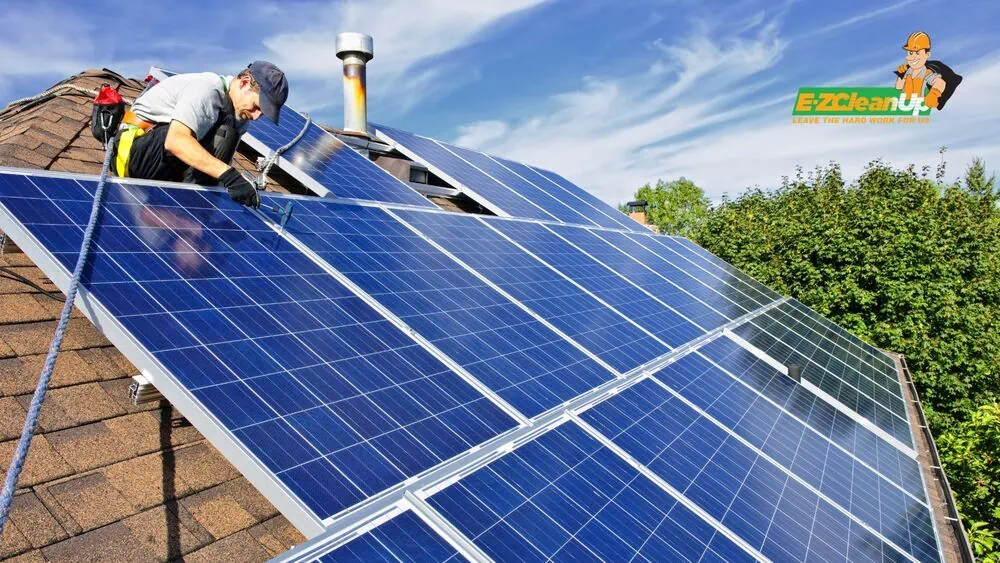
Is it Too Heavy? Or Too Complex for You? Let Us Help! 🙌
Solar panels are large, heavy, and delicate objects that can be challenging to handle. Their weight and size can make transportation and disposal daunting tasks for most homeowners. Moreover, the complex nature of solar panel construction requires a thorough understanding of how to properly disassemble and recycle them, ensuring none of the valuable or harmful materials go to waste or cause environmental harm.
This is where EZ Cleanup Junk Removal Philadelphia steps in. We take the hassle out of disposing of your old solar panels. With one phone call, our team of professionals will be on-site, ready to handle your solar panel removal. We’re well-versed in the best practices for transporting and disposing of these panels, ensuring that your panels go through the correct disposal process, contributing to a more sustainable future.
Our comprehensive service means you don’t need to worry about the heavy lifting or figuring out where and how to recycle your panels. We’ve got it covered. You can have peace of mind knowing that your panels will be handled responsibly and efficiently. With EZ Cleanup, sending your solar panels into their next cycle couldn’t be easier.
Conclusion
As we look towards a future where renewable energy takes center stage, the proper disposal and recycling of solar panels will play a pivotal role in ensuring that our shift to greener energy sources remains sustainable. We each have a part to play in promoting responsible solar waste management. By selling, donating, or recycling your solar panels, you’re not only keeping valuable materials out of our landfills but also contributing to a more sustainable energy future.
Disposing of solar panels doesn’t have to be a daunting task. It can be as easy as making a single phone call to EZ Cleanup. Let us handle the heavy lifting and ensure that your panels are disposed of properly, paving the way for their next life cycle.
⚡ Let’s keep our energy future bright, one panel at a time! Contact EZ Cleanup for a free on-site estimate for your solar panel removal!


